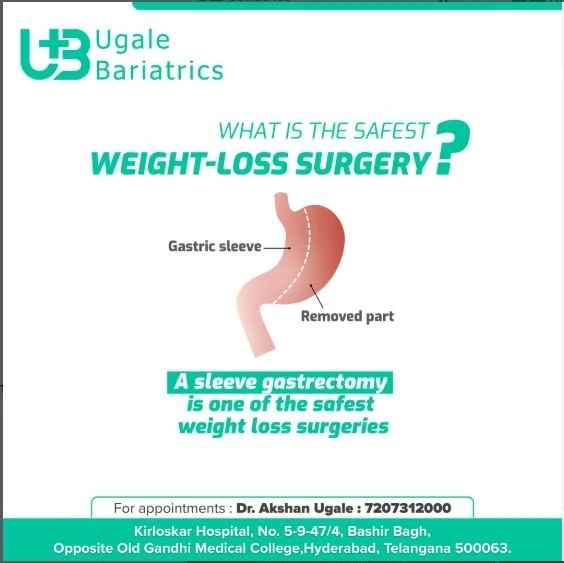In recent years, the gastric sleeve—also known as sleeve gastrectomy—has gained immense popularity as an effective weight loss surgery. But with every surgical procedure, one crucial question always arises: Is the gastric sleeve safe? Let’s break it down and understand the safety, benefits, and potential risks of this widely recommended bariatric surgery.
What Is Gastric Sleeve Surgery?
Gastric sleeve surgery involves the removal of a large portion of the stomach, leaving behind a sleeve-shaped pouch. This smaller stomach limits food intake and reduces hunger hormones, leading to significant weight loss. It's typically performed laparoscopically, making it less invasive and offering a quicker recovery.
Why It’s Considered Safe
Gastric sleeve surgery is considered one of the safest bariatric procedures available today, especially when performed by experienced surgeons at a certified weight loss center. Here’s why:
- Minimally Invasive: Performed through small incisions, reducing infection risk and promoting faster healing.
- Shorter Recovery Time: Most patients return to daily activities within 2–3 weeks.
- Low Complication Rate: Compared to other weight loss surgeries, gastric sleeve has fewer long-term risks.
- No Foreign Objects: Unlike gastric bands, there are no implants involved.
Who Is It Safe For?
This procedure is recommended for individuals with a BMI over 35 or those with obesity-related health issues such as type 2 diabetes or sleep apnea. Before surgery, patients undergo detailed evaluation to ensure they are fit for the procedure.
Potential Risks to Be Aware Of
Like any surgery, the gastric sleeve does carry some risks, such as:
- Bleeding or infection
- Leakage from the staple line
- Nutritional deficiencies
- Acid reflux
However, these risks are rare when the surgery is performed by a qualified bariatric surgeon and followed by proper post-operative care.


